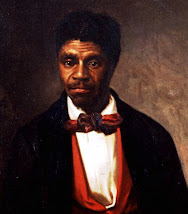Thursday, July 24, 2008
Subject: Baltimore Miseducation From: Chuck Smith Sent: Wednesday, July 02, 2008 1:21 PM
HARD TIMES AT DOUGLASS HIGH: A NO CHILD LEFT BEHIND REPORT CARD
Inside an inner-city Baltimore high school where teachers and students face the challenges of a 2002 education-reform act.
An HBO Documentary.
I felt compelled to weigh in on this discussion. I did watch the program and I became angry for several different reasons. For those who have not yet seen the program, it is about Frederick Douglass High School in Baltimore. Douglass is reputedly the oldest "historically black" high school in the country. One of its more famous alums is Thurgood Marshall.
The points raised by Mr. Wilburn are very pertinent, but I would quibble with him on some very minor things that really are not important for the larger discussion. With that said, Larry's point about moving kids along the system is well taken, but it is not anything new. Social promotion has been going on in our public school systems long before any of us were born. The insidious factor of the current use of social promotion is the philosophy upon which it is founded. The current flavor-of-the-month educational philosophy is that kids cannot have their self-esteem dinged.By that I mean, the paramount thing, other than the silly-assed standardized tests, is to assure that every child feels good about him or her self.
While this may seem to be a laudable goal, I suggest that the effort merely cripples our children. By way of example, in the Montgomery County(Maryland) School System, one of the largest and most affluent public school systems in the country, we have a grading policy of: 1) giving students agrade of no less of 50% if they make a legitimate effort on an assessment;and 2) allowing students to re-take certain assessments to improve theirgrade. The philosophy being that if the student gets good grades, the student will feel good about himself.
When this grading policy was first promulgated, it included that homework could not count as a part of a student's grade; that portion of the policy has since been modified to make homework no more than 10% of a student's grade. My experience with this policy as both a parent and ateacher in the system leads me to the conclusion that the grading policy is a misguided effort to bolster kids' grades and by extension, their self-esteem.
All this policy has taught the kids to do is to scam the system. The first words out of many of my students' mouths when I announce an assessmentis: "can we do a make-up on this?" Think about the implications of that question. The students know that maximum effort on the initial test or quiz is not necessary because they get a mulligan. The system is teaching them that maximum effort is not necessary because a second (or third under some circumstances) chance is available. This policy is the definition of insanity!
Turning back to the documentary, there is a point in it where a Spanish teacher is talking to one of her students who is failing the class becausehe doesn't come to class and when he does, he does no work. The teacher is trying to reach this knucklehead by telling him that he is capable of doing the work and all the teacher needs to see from him is some effort. Her thinly-veiled message is "if you do SOMETHING, I will pass you." The student understands the message, but his response is that he thinks that she should pass him "for doing nothing."
The teacher, not believing what she is hearing, repeats his statement to him just to make sure that she understands that he is demanding that she pass him in the class without him doing any work. The documentary does not show what she said to the student after she clarified his comment, but if it would have been me, I would have called that idiot everything except a child of God. The exchange between the Spanish teacher and her student really summed up the "problem" with the educational system.
As depicted in the documentary, many of our kids have a sense of entitlement. By this I mean that they feel as if someone, somewhere in the world owes them something. In my classrooms, I see this sense of entitlement across all socio-economic boundaries and across all races. Our children really believe that the fact of their existence means that they should "have." Lost in the entitlement, however, is the concept that one needs to work for the "have." Unfortunately, our society and educational system play into this sense of entitlement by perpetuating the self-esteemat all costs philosophy.
I do not have a solution to the problem of our educational system other than to try to eliminate the entitlement type of thinking one kid at a time.I, of course, end up being the bad guy because I do not "give" grades; my students get what they earn. Nonetheless, I do know that in many instances the lack of parental involvement in the schools is a result of learned behavior. The parents of my students' parents were not involved in their children's schools, so how would the current set of parents know the expected behavior? Moreover, many of my students' parents had bad experiences during their limited academic careers. Why should they want to have anything to do with the schools now?
We are caught in a vicious circle that requires people to learn how to advocate for themselves and their children in order for the cycle to end. Federal programs, such as the comically named No Child Left Behind law, are not the answer. We need an entirely new paradigm for public education. The nine month academic year cycle is an anachronistic vestige of anagricultural society that no longer exists. Our boundaries of elementary, middle, and secondary school may no longer fit students either developmentally or metacognitively. Yet, we keep doing things in the same manner and wondering why the why the results are not different!
I will climb off of the soap-box now. Charles (Chuck) T. Smith II
Inside an inner-city Baltimore high school where teachers and students face the challenges of a 2002 education-reform act.
An HBO Documentary.
I felt compelled to weigh in on this discussion. I did watch the program and I became angry for several different reasons. For those who have not yet seen the program, it is about Frederick Douglass High School in Baltimore. Douglass is reputedly the oldest "historically black" high school in the country. One of its more famous alums is Thurgood Marshall.
The points raised by Mr. Wilburn are very pertinent, but I would quibble with him on some very minor things that really are not important for the larger discussion. With that said, Larry's point about moving kids along the system is well taken, but it is not anything new. Social promotion has been going on in our public school systems long before any of us were born. The insidious factor of the current use of social promotion is the philosophy upon which it is founded. The current flavor-of-the-month educational philosophy is that kids cannot have their self-esteem dinged.By that I mean, the paramount thing, other than the silly-assed standardized tests, is to assure that every child feels good about him or her self.
While this may seem to be a laudable goal, I suggest that the effort merely cripples our children. By way of example, in the Montgomery County(Maryland) School System, one of the largest and most affluent public school systems in the country, we have a grading policy of: 1) giving students agrade of no less of 50% if they make a legitimate effort on an assessment;and 2) allowing students to re-take certain assessments to improve theirgrade. The philosophy being that if the student gets good grades, the student will feel good about himself.
When this grading policy was first promulgated, it included that homework could not count as a part of a student's grade; that portion of the policy has since been modified to make homework no more than 10% of a student's grade. My experience with this policy as both a parent and ateacher in the system leads me to the conclusion that the grading policy is a misguided effort to bolster kids' grades and by extension, their self-esteem.
All this policy has taught the kids to do is to scam the system. The first words out of many of my students' mouths when I announce an assessmentis: "can we do a make-up on this?" Think about the implications of that question. The students know that maximum effort on the initial test or quiz is not necessary because they get a mulligan. The system is teaching them that maximum effort is not necessary because a second (or third under some circumstances) chance is available. This policy is the definition of insanity!
Turning back to the documentary, there is a point in it where a Spanish teacher is talking to one of her students who is failing the class becausehe doesn't come to class and when he does, he does no work. The teacher is trying to reach this knucklehead by telling him that he is capable of doing the work and all the teacher needs to see from him is some effort. Her thinly-veiled message is "if you do SOMETHING, I will pass you." The student understands the message, but his response is that he thinks that she should pass him "for doing nothing."
The teacher, not believing what she is hearing, repeats his statement to him just to make sure that she understands that he is demanding that she pass him in the class without him doing any work. The documentary does not show what she said to the student after she clarified his comment, but if it would have been me, I would have called that idiot everything except a child of God. The exchange between the Spanish teacher and her student really summed up the "problem" with the educational system.
As depicted in the documentary, many of our kids have a sense of entitlement. By this I mean that they feel as if someone, somewhere in the world owes them something. In my classrooms, I see this sense of entitlement across all socio-economic boundaries and across all races. Our children really believe that the fact of their existence means that they should "have." Lost in the entitlement, however, is the concept that one needs to work for the "have." Unfortunately, our society and educational system play into this sense of entitlement by perpetuating the self-esteemat all costs philosophy.
I do not have a solution to the problem of our educational system other than to try to eliminate the entitlement type of thinking one kid at a time.I, of course, end up being the bad guy because I do not "give" grades; my students get what they earn. Nonetheless, I do know that in many instances the lack of parental involvement in the schools is a result of learned behavior. The parents of my students' parents were not involved in their children's schools, so how would the current set of parents know the expected behavior? Moreover, many of my students' parents had bad experiences during their limited academic careers. Why should they want to have anything to do with the schools now?
We are caught in a vicious circle that requires people to learn how to advocate for themselves and their children in order for the cycle to end. Federal programs, such as the comically named No Child Left Behind law, are not the answer. We need an entirely new paradigm for public education. The nine month academic year cycle is an anachronistic vestige of anagricultural society that no longer exists. Our boundaries of elementary, middle, and secondary school may no longer fit students either developmentally or metacognitively. Yet, we keep doing things in the same manner and wondering why the why the results are not different!
I will climb off of the soap-box now. Charles (Chuck) T. Smith II
Subscribe to:
Post Comments (Atom)

















































No comments:
Post a Comment